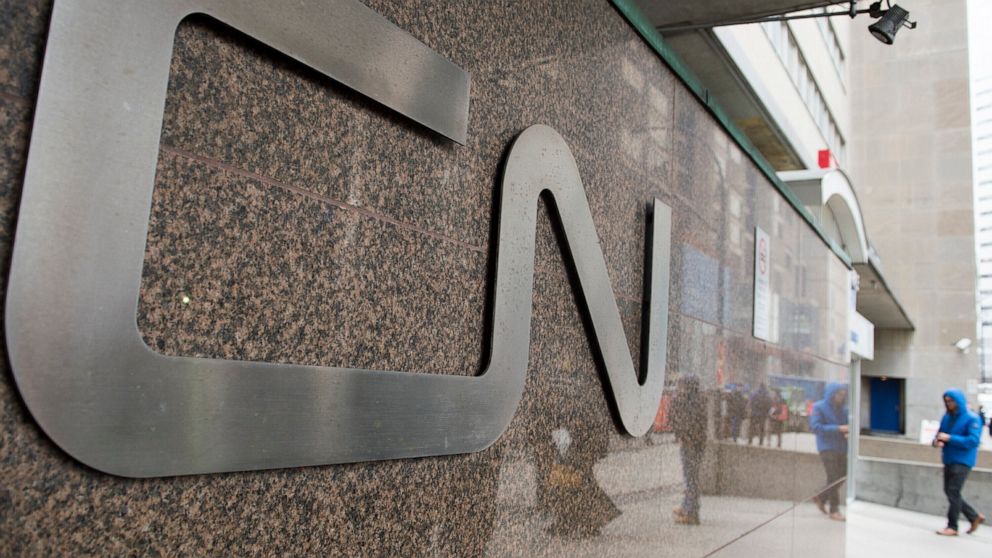Regulators reject key part of $33.6 billion railroad deal
Canadian National’s $33.6 billion deal to acquire Kansas City Southern railroad is in jeopardy after federal regulators rejected a key part of the plan Tuesday and opened the door for a competing $31 billion offer from Canadian Pacific Railway
OMAHA, Neb. — Canadian National’s $33.6 billion deal to acquire Kansas City Southern railroad is in jeopardy after federal regulators rejected a key part of the plan Tuesday and opened the door for a competing $31 billion offer from Canadian Pacific Railway.
The Surface Transportation Board said Canadian National won’t be able to use a voting trust to acquire Kansas City Southern and hold the railroad while the board reviews the overall deal. It wasn’t immediately clear whether Kansas City Southern will want to move forward with the deal without a voting trust that would allow shareholders to get paid before the board embarks on its lengthy review of the deal. Plus, Kansas City Southern is now free to accept CP’s offer, which already has regulatory approval to move forward.
The Surface Transportation Board said the “ proposed voting trust is not consistent with the public interest standard under the Board’s merger regulations.”
Now that regulators have rejected Canadian National’s plan to use a voting trust, Kansas City Southern is due to receive a $1 billion breakup fee.
Canadian Pacific originally announced an agreement to buy KCS for roughly $275 per share in March, but Canadian National intervened with its $325 per share offer and eventually won over Kansas City Southern’s board in May after sweetening its offer to include more stock and to cover the breakup fee Kansas City Southern would owe to CP.
Earlier this month, Canadian Pacific came back with a $31 billion offer that valued KCS at roughly $300 per share that Kansas City Southern’s board rejected. CP officials maintained throughout the bidding war that they didn’t think CN’s plan to acquire Kansas City Southern would get approved because of concerns about its impact on competition, so they didn’t see a need to outbid Canadian National.
Regulators have already approved Canadian Pacific’s plan to use a voting trust to acquire Kansas City Southern, so that deal has a clear path to move forward if KCS accepts CP’s offer and shareholders of both railroads approve it. There are fewer competitive concerns about that proposed merger because there is little overlap between the two railroads’ networks and even after the deal the combined railroad would be the smallest of the major North American railroads.
Using a voting trust will allow Kansas City Southern shareholders to be paid upfront before the Surface Transportation Board embarks on its full review of the deal, which may take more than 18 months. If regulators ultimately reject the deal, then the voting trust would sell off Kansas City Southern, so it could remain independent.
The Surface Transportation Board hasn’t approved any major railroad mergers since the 1990s. It has generally said that any deal involving one of the nation’s six largest railroads needs to enhance competition and serve the public interest to get approved. The board has also said it would consider whether any deal would destabilize the industry and prompt additional mergers.
For more than two decades the railroad industry has been stable, with two railroads in the Western United States — BNSF and Union Pacific — two in the Eastern United States — CSX and Norfolk Southern — and the two Canadian railroads that serve part of the United States.
![]()


